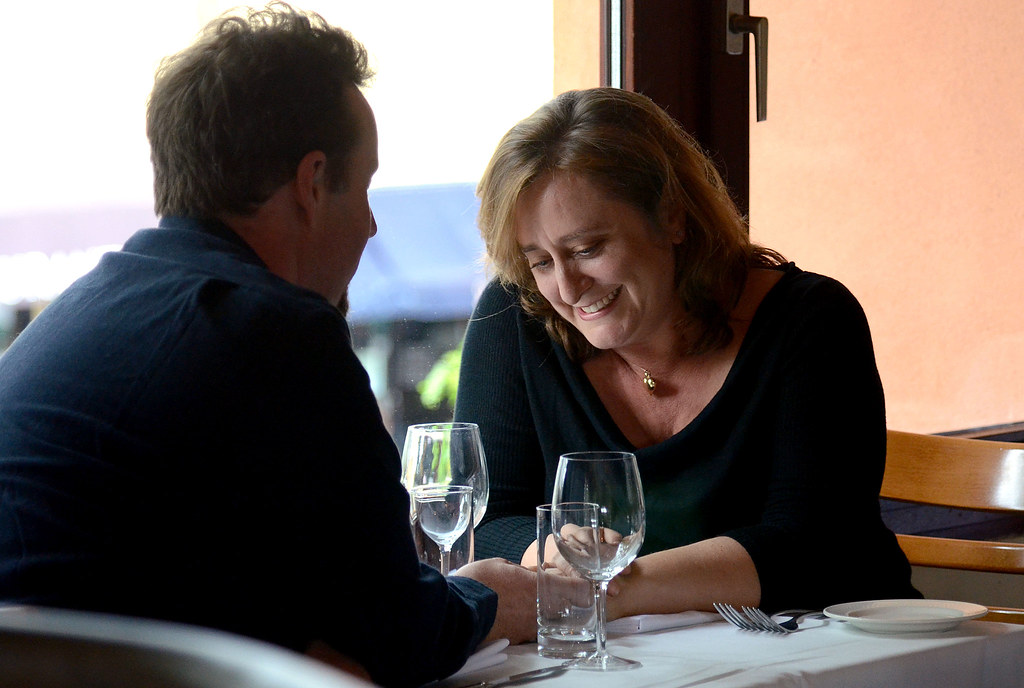
Julie Feinstein Adams spent two tiresome years on JDate, an online dating website for Jewish singles, going on dates that led her nowhere.
One year later, after helping a close friend with her online profile on Match.com, Adams made an account for herself, which is where she met Scott — and they are now happily married.
“I saw one profile come up that I wanted to contact for myself. So I signed up on Match just to meet (Scott),” said Adams, a dating coach and SF State alumnus. “We emailed briefly, accidentally lost touch and then, when we reconnected, he had decided he was swearing off online dating, even though he said I seemed nice.”
Adams and her husband are one example of many success stories stemming from a burgeoning online dating scene. The rising trend of online dating has spawned a variety of new dating websites that continue to increase in popularity with younger singles.
Studying 100,000 profiles of each age group of single men and women between the ages of 18 and 48, OkCupid analysts found that the number of online daters peaks at age 24, but drops off sharply at the age of 30. OkCupid, along with Match.com, were the second and third most searched dating sites on Google in 2012, according to Google Trends.
“It seems like the stigma of only older people using online dating websites has decreased and more young people are starting to use it,” Adams said. “Most of my clients use OkCupid and Match.com.”
There are also sites that can set up blind dates or group dates based on mutual hobbies and interests. One includes Meet me at the Airport, a website where one can connect with other travelers at an airport. Another, Crazy Blind Date, an app extension of OkCupid that allows users to pick a time and place, and the app will search for nearby dates based on interests from the person’s OkCupid account.
Take Tinder as an example. This newer dating app is based on a rating system where users click an ‘X’ for no, or a heart for yes, based on personal perceptions of attractiveness. If both click ‘yes’ on each other’s photos, the two users become matched up and can then chat.
“Tinder weeds out people you aren’t interested in. I’ve gotten matched up with over 100 people, and I’m usually pretty selective,” Alexa Kern, political science major said. “I think Tinder is definitely appealing to younger singles and can be a little superficial, but for example, if a guy says he’s 29 and his most recent picture is from five years ago, then you know something’s a bit off and there’s a few discrepancies.”
The 20-year-old Kern signed up for an OkCupid account a few months ago as a joke to see what type of responses she’d get. After a few weeks, she decided to try her luck online for a match. So far, it’s proved to be a dead end she said.
“I haven’t had any good experiences on OkCupid because I get so many messages from gross older men asking if I have a daddy fetish or asking me to live with them. It gets to the point where I would only respond to a few people,” she said.
Andrea Flores used Craigslist’s “strictly platonic” section to connect with other individuals nearby. Both anxious and scared about stranger’s true identities, Flores was drawn to the immediacy of being able to contact random people whenever they posted an ad.
“I messaged a guy back and forth (for) about a year before we met each other in person,” the 22-year-old UC Berkeley student said. “We met up for coffee and went to eat sushi, but we never really hung out after that.”
Looking for love online doesn’t always end in despair. Music graduate student Whitney Smith used OkCupid for six months, where she met and dated a guy for three months.
“I went with a group of my friends and met him for the first time at Twin Peaks,” Smith said. “The date went really well and I think we even kissed that night.”
However, some students feel they will never use dating websites again.
“Don’t do online dating, unless you are looking for a booty call,” health education major Michelle Gentilcore said.
Although she misses face-to-face interactions, Adams believes virtual communication has affected our personal interactions with each other.
“In terms of dating and virtual communication, one is the problem of falling in love with a profile before you meet the person, which sets you up for a let down,” she said. “The other is that you go around in the world, wishing that everyone had a button that you could click to find out their availability and interests.”
There can be a big difference between a person’s intentions online when sending a message and how someone perceives that message, according to Adams. Although virtual communication can foster positive relationships long term if you find the right balance, Adams suggests talking on the phone to improve social interaction.
“I’ve always been cautious about electronic communication and how it seems to decrease the quality of personal interactions,” Adams said. “I am concerned that we are losing an important touch point. Hearing a person’s voice can help you determine if that in-person meeting is worth your time.”
Online or offline, being clear about what you want from a relationship and learning to say no is the key to a successful relationship, Adams said.
“The path to dating success is still the same: identifying what you want, looking at your patterns and habits that may be getting in your way of creating partnership and learning through dating,” she said. “Trying out new ideas and behaviors, honing your intuition, seeing “rejection” as a gift that frees you up and finding that ‘cosmic glue’ with a compatible, available partner, to get into a relationship that sticks.”






